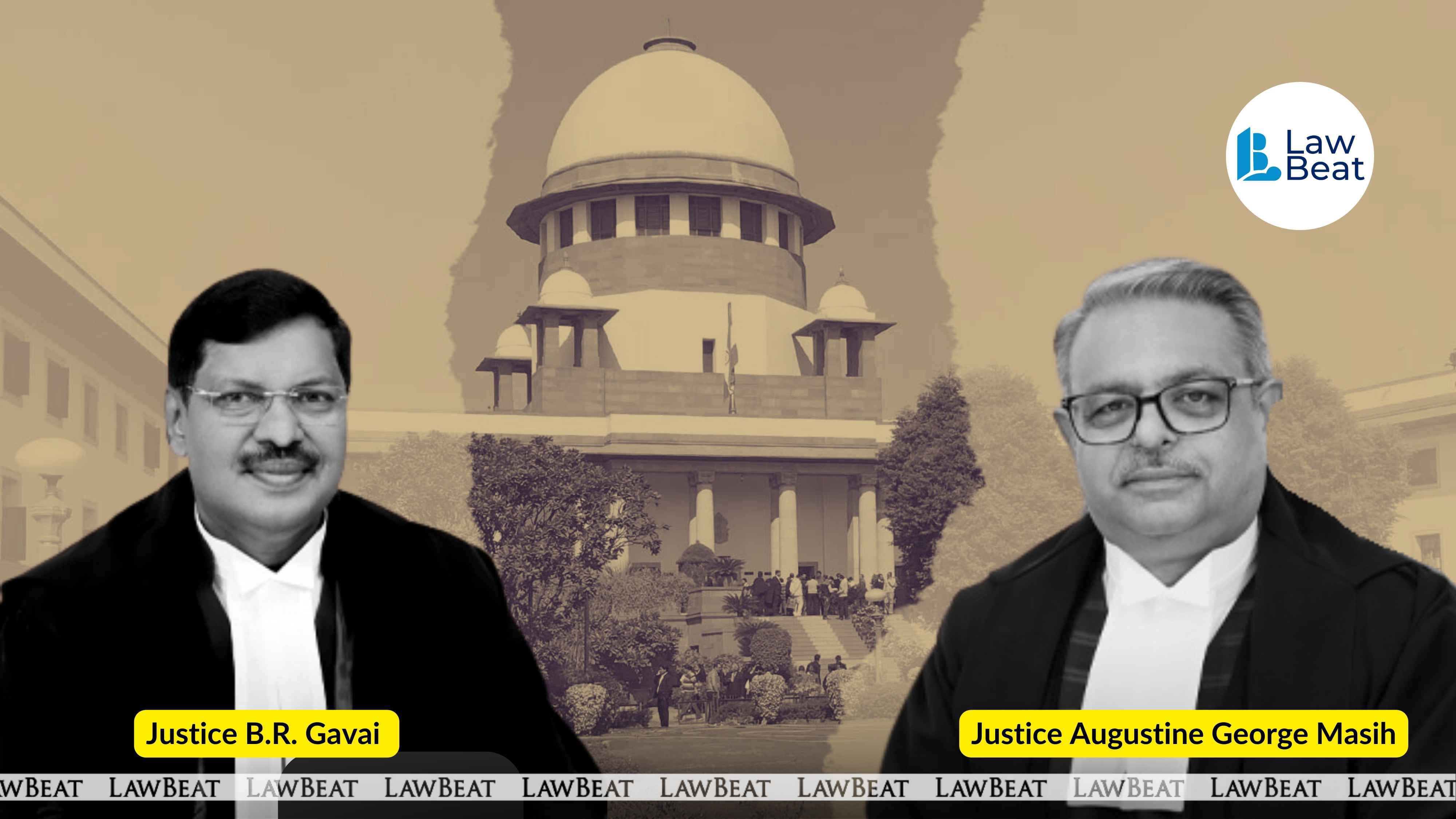Supreme Court Orders Release of Life Convict Who Jumped Parole

The appellant had already been granted remission for the main offence under Section 302 IPC
The Supreme Court recently declined to examine a broader issue raised by a life convict who was sentenced to an additional two years in jail for jumping parole. The convict had argued that once a person is sentenced to life imprisonment, any other sentences must run concurrently and cannot be added separately.
However, the bench of Justices B R Gavai and Augustine George Masih allowed his appeal against the two-year sentence on different grounds. Court noted that the convict had already undergone 10 months of additional imprisonment, which it found sufficient to meet the ends of justice under the Prisoners Act, 1988.
"Since the appellant has already been granted remission for the main offence under Section 302 IPC, he is directed to be released forthwith, if not required in any other case," the bench ordered on the petition filed by Karan Singh.
Singh filed the appeal challenging the order of May 9, 2024 passed by the single judge of the High Court of Punjab and Haryana at Chandigarh, thereby dismissing the revision petition filed by him.
In an FIR of January 7, 2005 registered at Police Station Sadar, Dadri, the appellant was implicated for an offence punishable under Section 302 read with Section 34 of the Indian Penal Code. He was convicted and sentenced to life imprisonment on February 8, 2007. The said conviction and sentence was affirmed by the high court by its judgment and order of February 6, 2009.
While the appellant was undergoing the sentence of life imprisonment, he was released on parole by an order of April 21, 2010 for a period of six weeks. However, since the appellant did not surrender within the specified period, he came to be arrested on June 30, 2010.
Since he had not surrendered within the prescribed period, an FIR on June 17, 2010 came to be registered against the appellant for the offences punishable under Section 8/9 of the Haryana Good Conduct Prisoners (Temporary Release) Act, 1988.
The appellant came to be convicted for the said offence by the judgment and order of November 11-13, 2010 and was sentenced to undergo rigorous imprisonment for two years. His appeal challenging the conviction and sentence came to be dismissed by the Additional Sessions Judge, Bhiwani, by an order of November 25, 2013. The high court also dismissed the revision petition.
In his appeal, his counsel submitted insofar as the main offence under Section 302 IPC was concerned, the appellant had already been granted remission by an order of September 26, 2024, however, the appellant could not avail the benefit of the same on account of the sentence awarded to him under the Prisoners Act, 1988.
The State counsel vehemently opposed the appeal. She submitted that the Prisoners Act, 1988 has been amended with effect from October 1, 2012, and it prescribes for a minimum sentence of two years, as such, the appeal was without merits.
The court noted that while Section 9 of the Prisoners Act, 1988 provides for a maximum sentence of three years, it does not prescribe a minimum sentence for the offence punishable under it.
To the contention of the counsel for the State with regard to the amendment to Section 9 of the Prisoners Act, 1988, the bench said that the amendment came into effect on October 1, 2012, whereas the offence was committed on June 17, 2010 and the order of sentence was issued on November 11/13, 2010. As such, the said amendment would not be applicable in the facts of the present case.
"In the present case, it can be seen that it is not the case of the respondent-State that the appellant was habitually not reporting to prison within the prescribed time. It appears that the offence for which the appellant was convicted under the Prisoners Act, 1988 was the first such instance," the bench said.
The appellant had already been granted remission for the main offence under Section 302 IPC. However, following the date of remission, the appellant had undergone an additional incarceration of approximately 10 months.
"In the facts of the case, we therefore find that the sentence already undergone would subserve the ends of justice for the offence punishable under the Prisoners Act, 1988," the bench said, allowing the appeal and setting aside the high court's order.
Case Title: Karan Singh Vs The State of Haryana
